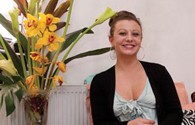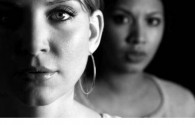Eurina Butler
Job description: Through The Gates BME Women's Support at St Mungo's
Areas of interest: Women involved in the criminal justice system
Eurina Butler's Recent Activity
"The damage to women who lose their accommodation when going in to prison is unbelievable. Many women are separated from children, have no partner to pay the rent or service charge, so they lose their accommodation, belongings and ID and it becomes very difficult to start again and access accommodation.
For women repeat offenders they are so used to not having any support when they come out, that it takes time for me to build up trust with them that I will actually go the extra mile to get them accommodation and support with my through the gates service.
With rent caps and housing benefit changes more women are being pushed away from their families and only have an option or housing out of London. I supported one young women recently access housing in Maidstone, but her family were two far away and she was travelling to Hackney to try and get support, eventually I did manage to help her access housing in Hackney through Social Services but this was a big struggle. If we had more community sentences we wouldn’t have half these problems of women being separated from families.
With the new housing benefit rates many women will be sent out of London for accommodation as living in London is no longer affordable. This I have already experienced with a number of women leaving prison. This then interrupts the children's education, and transfer of their probation. Children may be placed on waiting lists for new schools, and other issues can include finding support groups and people to interpret if English is not their first language.
Culture has a massive impact on women offenders in terms of ability to reconnect with family and housing post release. In many religions a woman who has offended can’t go back and seek support from their community as they will have been cut off.
A number of women are held on immigration issues. Some are pregnant or already have children in the community where family are looking after them. The family is in hardship as they cannot get any benefit for the children, also some of these families are not aware that they may be able to go to social service for financial support. Claiming Child Allowance can be a long process as often the family or friends do not have guardianship of the children, they are just helping out. Those parents held on immigration issues, when they are released they usually have to stay with friends or family, so there are overcrowding issues. Seeking financial support from NASS can be another issue and I often have to quote the child in need act, then social services will then decide to offer the children money, but nothing for the mother even if she is pregnant, no allowance is made available to her until the child is born.
If a person is substance user they may have to attend the local office for the methadone. It can be difficult to accompany them for their appointment as they have no accommodation. You may go with them the first day, but the next day or the following week you are unable to get hold of them because they have no address. When they are release from prison with no accommodation, most will go back to those friends who are taking drugs, as the clients know it’s the only way they will have a roof over their head. As a consequence all the hard work and therapy that is done by the women in prison just goes to waste.
Private accommodation is difficult as they are required to find rent in advance. Usually if you find accommodation, they can apply to Social funds for rent in advance. However with the new changes to benefits, where social funds will be phased out this will become much more difficult. Also women won’t be able to move from their local area, as benefits will be given to the local community where you have a connection."
Reply To: Women, homelessness and the criminal justice system




